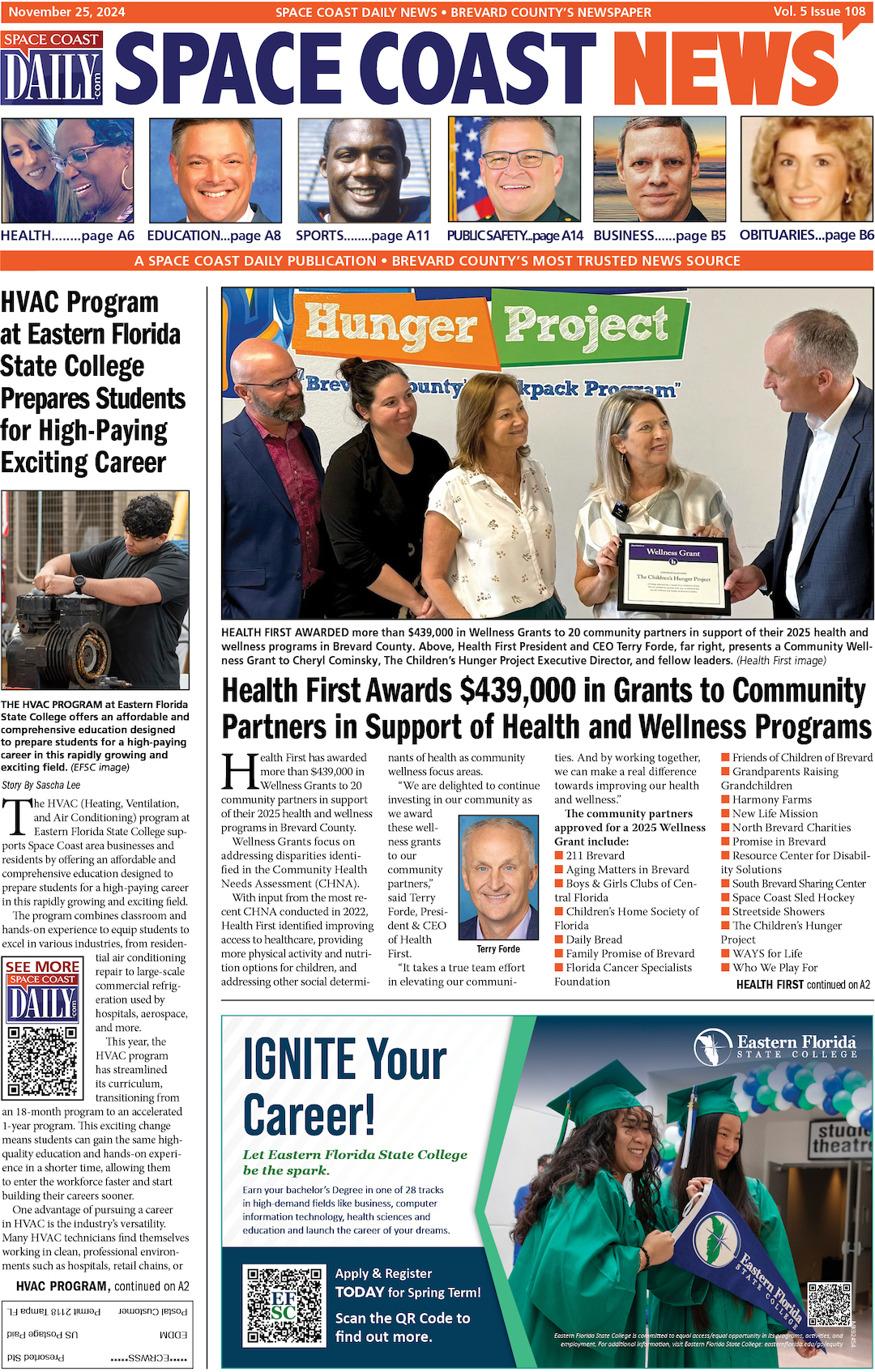Resources To Help You Stop Feeling Isolated
By Space Coast Daily // December 14, 2024

Feeling isolated can be a debilitating experience, affecting one’s mental and physical well-being. It is important to understand that social isolation is a growing issue, especially in our fast-paced, digitally connected world.
The lack of real human connections can lead to significant emotional distress. Fortunately, there are numerous resources available to combat this sense of loneliness. In this article, we will explore both digital and local options that can help individuals reconnect and find support.
Understanding the Causes and Impact of Social Isolation
Social isolation can stem from a variety of causes, including relocation, the loss of loved ones, health issues, or social anxiety. It is a state that can slowly creep in and go unnoticed until its effects become severe. Lack of human interaction can lead to deteriorating mental health, with symptoms akin to depression and anxiety.
Isolation is not only limited to the absence of people but can also be a result of feeling disconnected even when others are around. This emotional disconnect can exacerbate feelings of being misunderstood or undervalued. Understanding that isolation is often a product of multifaceted circumstances is the first step toward finding appropriate solutions.
Breaking through the cycle of isolation can be challenging, which is why identifying the right resources and support systems is critical. Knowing that one is not alone in their struggle can be incredibly reassuring, and there are avenues available for anyone saying, “I need someone to talk to“.
Online Communities: Finding Your Tribe without Stepping Outside
In an age where the internet can connect us with people across the globe, online communities offer a lifeline to those feeling isolated. These digital groups cater to diverse interests and experiences, allowing individuals to find their tribe based on mutual interests or shared experiences. They are easily accessible and often free to join.
Online forums and social media groups provide a platform for open expression without the necessity of physical interaction. For anyone apprehensive about face-to-face meetings or for those with mobility limitations, these communities can be a safe haven to express oneself freely and build relationships.
Virtual meetups and webinars can also supplement in-person interactions, often covering a wide array of topics and hobbies. They offer a space for learning and discussion, further enhancing the sense of community for participants. Moreover, many of these groups may transition to in-person gatherings when members feel comfortable enough, offering the best of both worlds.
Leveraging Technology: Virtual Counseling and Mental Health Apps
Technology has also revolutionized access to professional support services. Virtual counseling has emerged as an effective tool in bridging the gap between those in need and mental health providers. It offers the flexibility and privacy that some individuals prefer, especially when dealing with sensitive issues.
Mental health apps have proliferated in the digital space, providing guided meditations, mood tracking, and on-demand therapist connections. They are designed to be personal tools that one can use to manage their well-being. While they don’t replace professional advice, they can be integral to a self-care routine.
These virtual options tear down barriers such as distance, time, and stigma. They put control back into the hands of the individual, allowing them to access support at their pace and according to their needs. For many, it is a comforting, discreet way to begin addressing feelings of isolation.
Volunteering And Social Activities: Reconnecting With The World Around You
Volunteering offers a unique opportunity to step outside oneself and engage with a wider community. It can enact positive change in the lives of others while simultaneously providing social interaction and a sense of purpose to those feeling isolated.
Local clubs and organizations often welcome new volunteers with open arms. These groups are not only gateways to making new connections but also contribute to a sense of accomplishment as one sees the direct impact of their efforts within the community.
Reconnecting with the world requires taking that first step into social activities that resonate on a personal level. It can be intimidating, but the rewards of new friendships and a revived zest for life are often worth the effort.
Overall, feeling isolated can be overcome by tapping into the wealth of resources available both online and offline. Whether it’s connecting with an online community, joining a local support group, utilizing virtual counseling apps, or volunteering, there are meaningful ways to break the silence of isolation and rediscover a sense of belonging.












